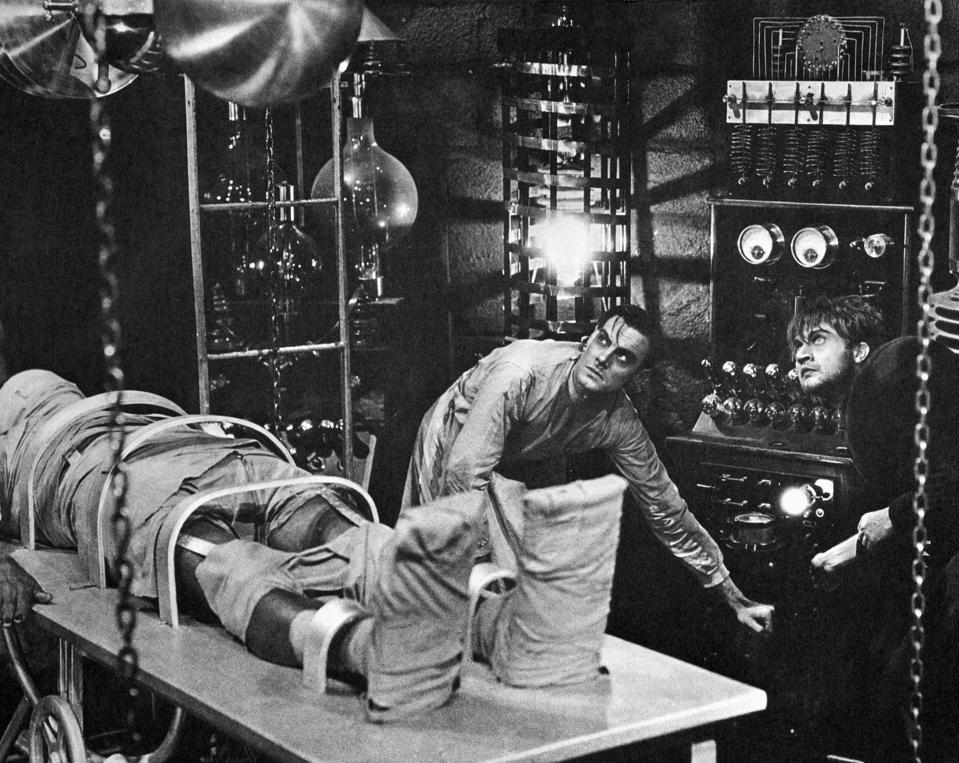We fantasise airline pilots to be like Leonardo DiCaprio in Catch Me If You Can: crisp uniformed adventurers who stride through airports and smile behind Ray-Bans before whisking us across the globe.
The real mark of success in aviation is the absence of drama. Cowboys who want to test the plane to its limits are quickly weeded out. Nothing happening is, quite literally, the best possible outcome.
It takes a certain kind of personality to find satisfaction in executing the same procedures thousands of times without cutting a single corner. Which begs a couple of questions: are successful pilots drawn to the job because of their personality? Or perhaps the job slowly moulds them into people who thrive on routine?
That’s not just a question for pilots. It’s one for all of us. Do we choose our work, or does our work choose us?
The Dance of Attraction, Selection, Attrition
The standard career advice of “follow your passion,” and “you can be anything you want” is mostly nonsense. In truth, jobs and people find each other through a process closer to natural selection.
People are attracted to roles that feel like a fit, organisations select those who display the right stuff, and those who don’t fit either get spat out or leave of their own accord. Stephen Woods and colleagues recently described “vocational gravitation and inhabitation.” Translation: we drift toward jobs that suit our personalities, and if we fit well the role settles into our bones.
Consider accountants. Their job requires reliability, detail and conscientiousness. People who seek adventure, camaraderie and risk are very unlikely to apply, less likely to make the cut, or after a few tax seasons bolt for the exit. By contrast, the organised and dependable find that balanced ledgers suit them perfectly.
The same pattern holds for entrepreneurs. Those who can’t tolerate risk, ambiguity, and rejection don’t last long in startups. Those with the requisite appetite for chaos stick around, thrive, and in the process become even more comfortable with uncertainty.
We don’t just choose jobs. Jobs choose us back.
Who you are is what you do
Research confirms what intuition suggests: who you are shapes what you do — and what you do, in turn, shapes who you become. A 2025 study found that people within the same occupations become more alike over time, suggesting that personality dictates who thrives (or at least, who lasts).
This makes self-knowledge not a luxury, but an essential career tool. If you know you hate routine, flying is a bad bet. If you need predictability, day-trading will eat you alive. Understanding yourself is the first step in finding work that fits.
But the story doesn’t stop there. Work shapes us back. It makes sense that we will be shaped by our work environment to favour certain aspects of our thoughts and behaviour. Police often become less trusting and more suspicious over time. Lawyers, over decades, tend to become more conscientious but less agreeable. Managers often grow more assertive (sometimes drifting into domineering). Entrepreneurs become increasingly comfortable with chaos and decision-making under uncertainty. Nurses develop resilience but may suffer empathy fatigue.
Over time, we end up looking more like everyone else who’s content in the role.
The question is: do you want to become that person?
Personality Change: Possible, But Not Complete
For decades, psychologists assumed personality traits were set in stone by early adulthood. Not so. State-of-the-art research now shows that personality traits are both relatively stable and capable of growth across the entire lifespan. A review of volitional personality change research concluded that, yes, personality can shift. People can deliberately cultivate more conscientiousness, boost their sociability or soften their neurotic edges. Coaching, awareness, and deliberate practice really do help. You are not locked into your current settings.
Many people want to be more focused, resilient, or less anxious — and we now know that structured interventions (coaching, therapy, deliberate practice) can produce genuine personality change. Better still, these shifts ripple outward: improved career growth, stronger wellbeing, better team dynamics, higher work satisfaction.
So yes, work shapes you. But this is not a sinister process of erosion; it’s a developmental opportunity. Jobs demand growth, and with intention you can guide that growth in directions that benefit both your career and your life.
Three Things to Remember
So where does that leave you and work? With three lessons worth taking seriously:
- Fit matters. Your personality is not a trivial detail—it’s the operating system that determines what kinds of work you’ll thrive in. The better you understand it, the more leverage you have over your choices. Self-awareness is career rocket fuel. Modern, affordable tools can help both awareness and change.
- Shape Yourself: Adaptation is possible. You can flex to meet job demands, and you’re more plastic than you think. Coaching, feedback, and deliberate effort all help. But know the limits: you can bend, but you can’t become a different species.
- Listen to Misfit: If you constantly feel like you don’t belong, that’s not a character flaw—it’s a signal. Chronic misfit erodes energy, motivation, and wellbeing. It’s often better to move than to endure. Exiting a bad-fit role isn’t failure; it’s wisdom.
Careers are not really about “following your passion.” They’re about negotiating the dance between who you are and what the work demands, recognising when the job is shaping you in ways you welcome—or in ways you don’t.
In the end, you don’t just do your job. Your job also does you.

